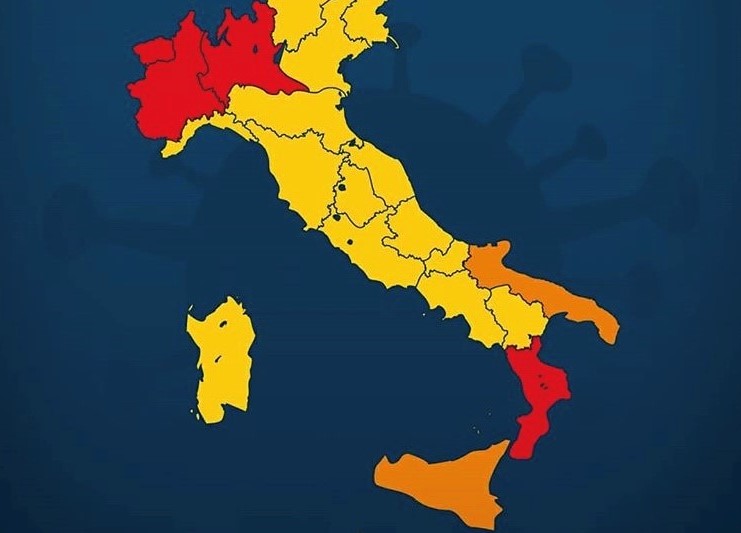Movements between regions at Christmas, what exceptions?

Marco Foti's speech
According to Istat data of 2019, 1 million and 700 thousand citizens are divorced and resident on the national territory, more than 14 million are the couples declared each year in the censuses of the National Institute of Statistics, of which one and a half million are made up of non-partners. conjugated.
According to the latest Eurofound report of 2019, a public European foundation that deals with social policies, about 4 million Italians and Italians cohabit with their partners. The link between divorce and cohabitation emerges strongly in several European studies and in Italy is confirmed even if the territory is commonly considered as a "traditional" state.
The Eurofond report focuses in particular on the rights of cohabiting partners, which in most countries are lower than those of those who get married. Some countries have introduced policies that recognize cohabitation and offer some kind of protection to couples who practice it. This happens, with different forms and intensities, in all the main European nations (France, Spain, Germany, just to name a few) with the exception of Italy, where the only case is that of civil unions for same-sex couples.
This issue is regularly re-proposed, as happens in recent months on the occasion of the Coronavirus pandemic, to the appropriation of the enactment of the Dpcm regulating the behavior of citizens on the national territory in terms of mobility. In this last case, just inherent in the Decree which will be in force starting from next December 4, we learn from the press that a total block of movements between the Italian regions will be foreseen during the Christmas holidays, from December 20 to January 6, thus causing serious social damage to extended families, cohabiting partners (or not) and divorced parents.
It should be remembered that Istat defines the family as “a group of people linked by ties of marriage, kinship, affinity, adoption, protection, or by emotional ties, cohabitants and having habitual residence in the same municipality. A family can also consist of only one person ”. In the same way, the Institute of Statistics defines the couple as "a type of family unit that can be childless or with children, married or unmarried, of the opposite sex or of the same sex".
So it comes to mind that the authorization for travel takes place so that the aforementioned nuclei (extended families, couples, cohabiting and non-cohabiting partners, divorced parents) can take advantage of the so-called "family reunification", even if there are regions whose groups they can be red or orange, limiting it to cases that concern, as mentioned, parents and children, spouses, cohabiting and non-cohabiting partners, even if they are not resident or domiciled in the final place (destination) of the move.
It is an exception that would cover an additional reason for urgency compared to those provided for in the Decree of the President of the Council of Ministers, to be applied in a particular situation such as Christmas holidays.
This is a machine translation from Italian language of a post published on Start Magazine at the URL https://www.startmag.it/smartcity/spostamenti-tra-regioni-a-natale-quali-deroghe/ on Tue, 01 Dec 2020 05:53:22 +0000.
